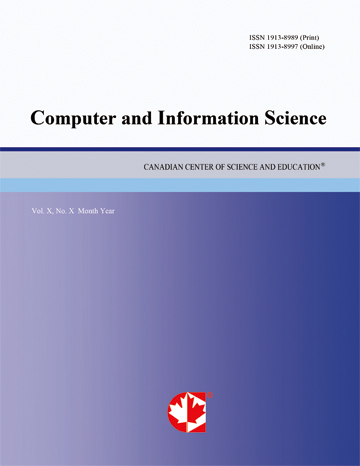Investigating the Organizational and the Environmental Issues that Influence the Adoption of Healthcare Information Systems in Public Hospitals of Iraq
- Waleed AL-Hadban
- Kamarul Hashim
- Shafiz Yusof
Abstract
Healthcare information systems (HIS) are an important part of nowadays hospitals as it provides valuable benefits and functionalities for healthcare provision. However, the implementation and adoption of these complex innovations is a challenging task as documented by the literature; therefore, careful planning and consideration to all important factors that influence the adoption process by healthcare staff is required. Governmental reports stated that the usage of HIS systems within public hospitals of Iraq is still low and problematic; that’s why the current study aims at empirically investigating the opinions of healthcare staff regarding the adoption of HIS within public hospitals of Iraq. The current study extended the UTAUT model by integrating additional organizational and environmental factors and for that purpose a questionnaire was developed for obtaining the healthcare staff’s opinions. To the best of our knowledge, this is the first empirical study that utilized the UTAUT model to tackle the topic of HIS adoption in Iraq public healthcare sector. The study was able to explain 33% and 46% of the variance within the behavioral intention and the usage of HIS, respectively. The practical findings of this quantitative study can be helpful for healthcare officials to address the actual challenges related to HIS adoption and to set proper strategies for implementing futuristic HIS projects.- Full Text:
 PDF
PDF
- DOI:10.5539/cis.v9n2p126
Journal Metrics
WJCI (2022): 0.636
Impact Factor 2022 (by WJCI): 0.419
h-index (January 2024): 43
i10-index (January 2024): 193
h5-index (January 2024): N/A
h5-median(January 2024): N/A
( The data was calculated based on Google Scholar Citations. Click Here to Learn More. )
Index
- BASE (Bielefeld Academic Search Engine)
- CNKI Scholar
- CrossRef
- DBLP (2008-2019)
- EuroPub Database
- Excellence in Research for Australia (ERA)
- Genamics JournalSeek
- GETIT@YALE (Yale University Library)
- Google Scholar
- Harvard Library
- Infotrieve
- Mendeley
- Open policy finder
- ResearchGate
- Scilit
- The Keepers Registry
- UCR Library
- WJCI Report
- WorldCat
Contact
- Chris LeeEditorial Assistant
- cis@ccsenet.org
